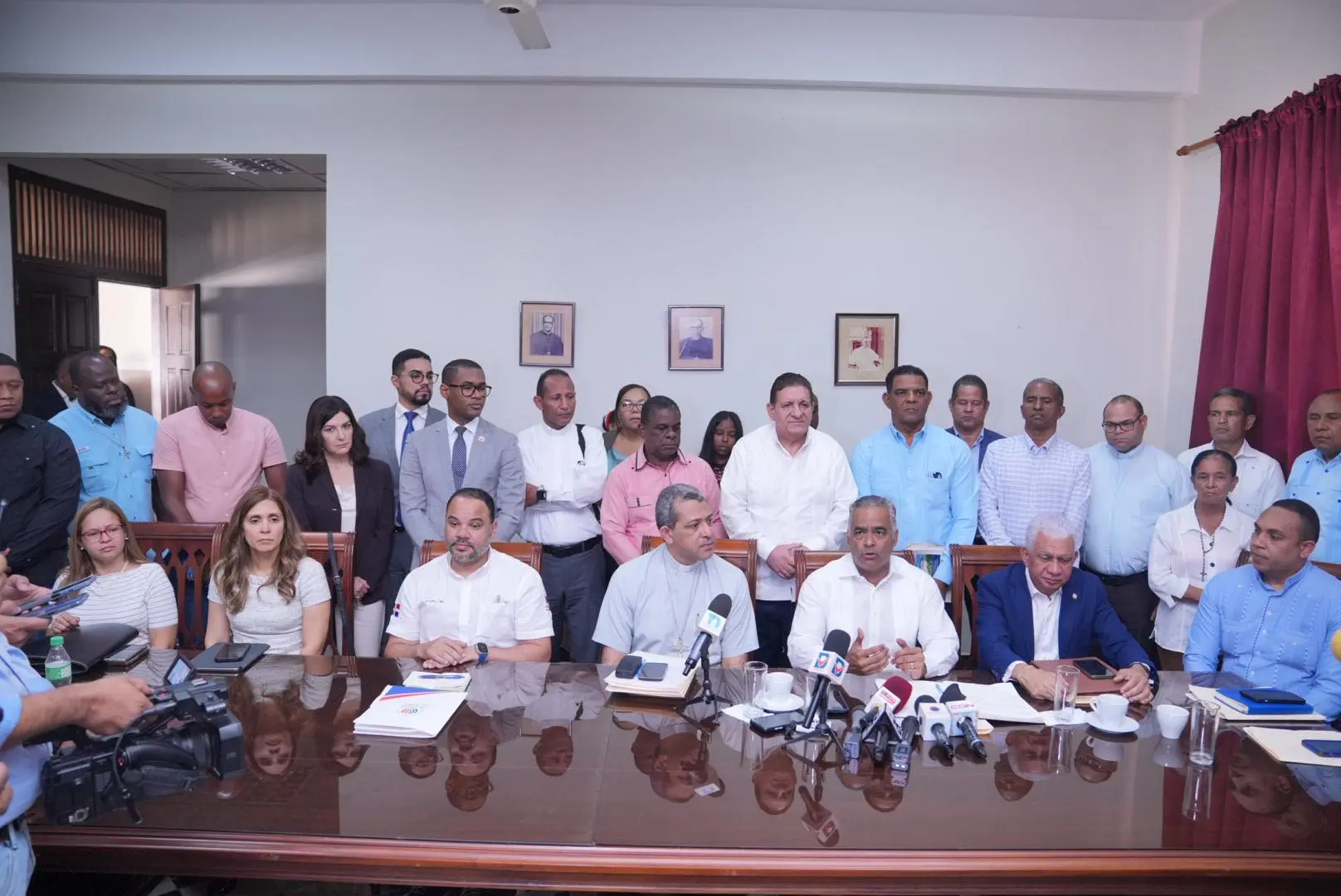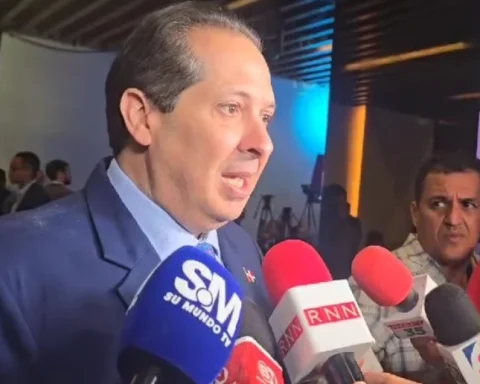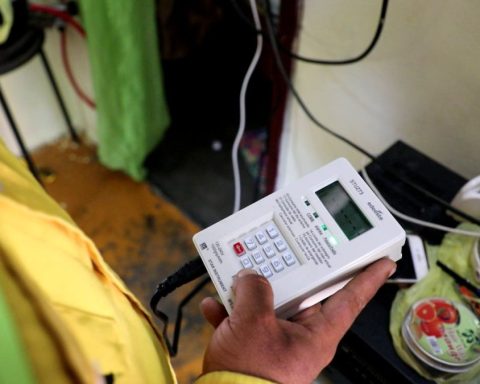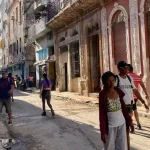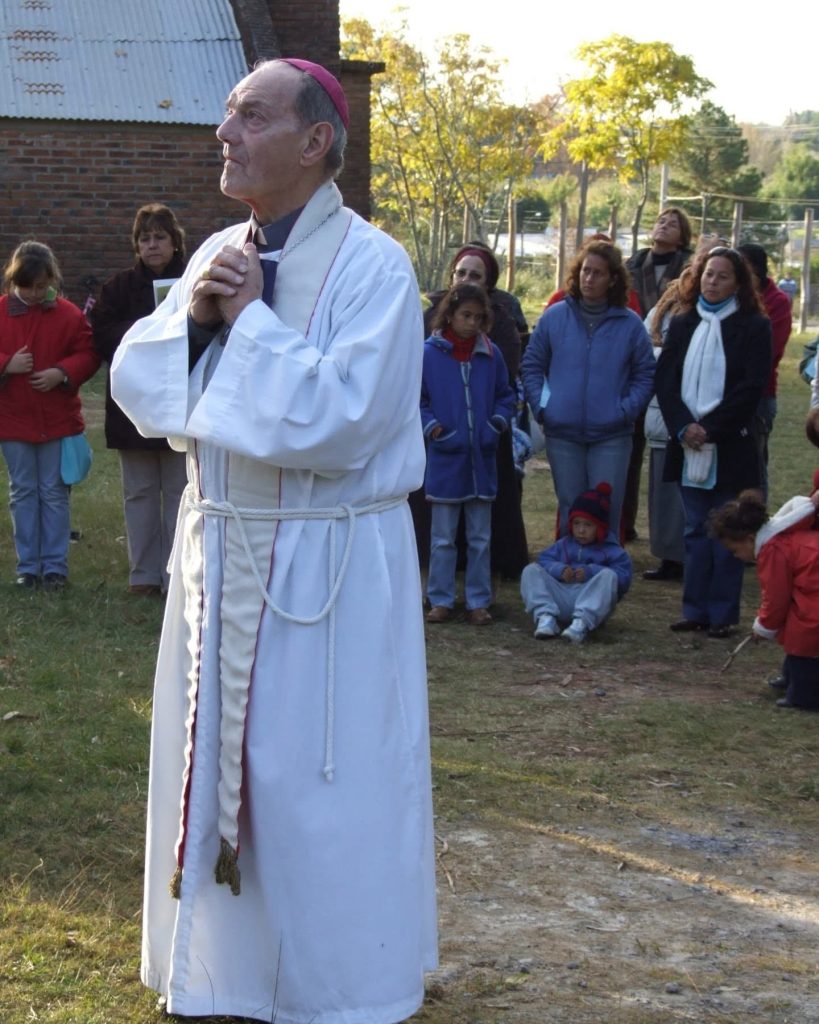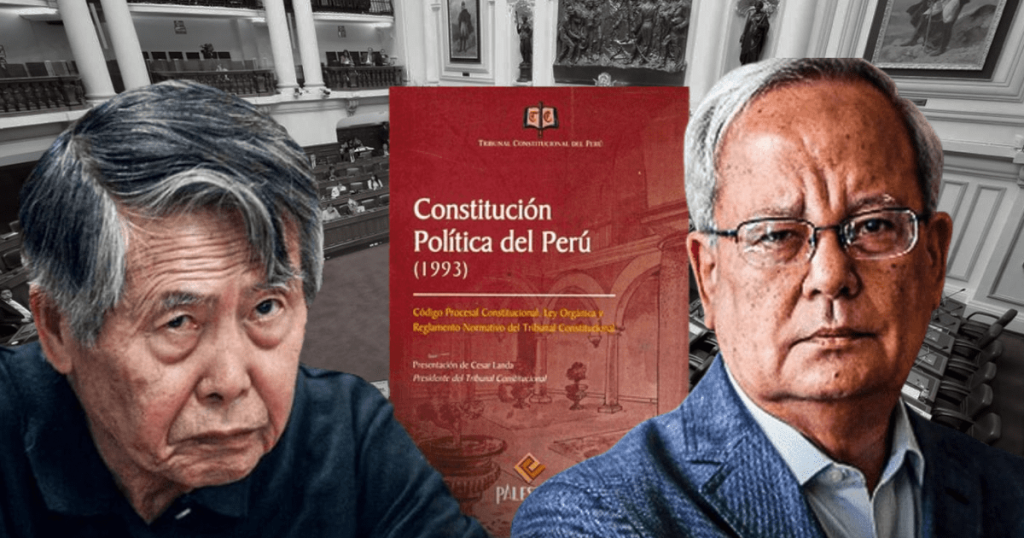Minister Santos highlights the Government’s willingness to reach consensual solutions
The minister of Energy and MinesJoel Santos, led this Monday, together with the Ombudsman, Pablo Ulloa and the bishop of La Vega, Carlos Morel Diplán; the first meeting of dialogue for the resettlement of communities affected by the mining works carried out in Cotuí, Sánchez Ramírez province.
The meeting was attended by the president of Barrick Pueblo Viejo, Juana Barceló; the president of the Senate, Ricardo de los Santos, and representatives of the affected communities.
During the meeting, held in the bishopric of La Vega, the formation of a mediation commission made up of representatives of the Government, the communities and the mining company was announced. This body will have the participation of the Church and the Ombudsman as ethical and constitutional guarantors.
Pablo Ulloa, in his capacity as Ombudsman, will assume the role of official spokesperson for the negotiations
In addition, it was agreed to resume talks next Wednesday, January 15 in the bishopric of La Vega, with the aim of reaching a comprehensive solution within a period of two weeks.
Government commitment and community willingness
Minister Joel Santos stressed the importance of addressing the concerns of the communities to achieve concrete agreements.
“There are many edges to this issue, but we must choose the appropriate scenarios to address them. Our focus is on guaranteeing fair solutions for the communities and benefits for the country,” declared Santos, who highlighted the Government’s willingness to seek solutions that provide peace of mind to the communities and allow the continuity of Barrick Pueblo Viejo’s operations.
For his part, Bishop Carlos Morel Diplán emphasized the relevance of a constructive dialogue.
“This meeting is a sign of hope. Many people have their eyes on this process. The family needs it, the country demands it, and dialogue requires effort,” he expressed.
Likewise, community representatives expressed their willingness to continue the dialogue process, highlighting the need to keep communication channels open to reach agreements that benefit both the affected families and the sustainable development of the region.
https://hoy-com-do.webpkgcache.com/doc/-/s/hoy.com.do/comunidades-de-cotui-y-barrick-pueblo-viejo-crean-comision-mediadora-para-solucionar- conflicts
